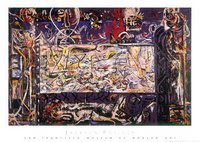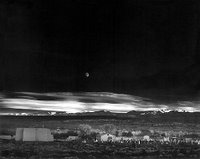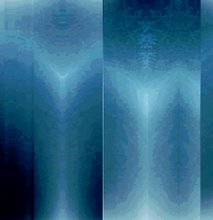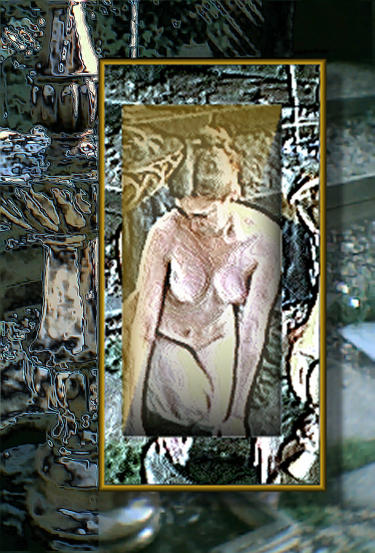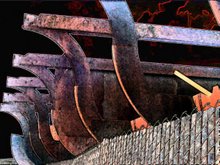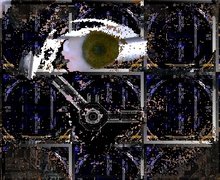Is Computer Art Legit?
If the road to hell is paved with good intentions do bad intentions send us to Heaven?
Whatever produces the work is good. To produce my art I may use paint, pen, computer, photograph…sometimes all of those. Whatever will realize the work.
I haven’t run into this yet, but I can imagine that some people may think that if you paint you are obligated to use paints. Painters shouldn’t “jigger” their work with computers and filters. Somehow that’s “cheating.” That mixing mediums is a kind of fake.
That’s true, as I see it, under two circumstances:
- The artist is claiming that they didn’t use a mixed approach. This is a sort of gyp! Here you are looking at what the artist claims is a painting and it’s really a photo run through a bunch of filters. It doesn’t make the image any less beautiful (yeah, you can get philosophical and argue it does, but I’m not in the mood to examine that right now), but the artist is fabricating and misrepresentation is, obviously, not good.
- If you see the creation of a work of art as a kind of game. In this case, the rules, determined by history or tradition (and what a fuzzy line there is between the two!), determine that painters paint. Photographers photograph. Computer geeks eat junk food and compile code (or whatever it is that they do besides play video games). To mix disciplines is to mess with the purity of the art.
Now, I have a soft spot in my heart for the argument of purity of art. Nevertheless, I am inclined to use anything to produce an image that I find beautiful.
Also, I do not see using any kind of tool, a camera, a computer, Silly Putty, as somehow inferior so long as it produces superior results. That is to say, tools are as good as their actual usefulness.
There is, even now in the 21st Century, a kind of prejudice against anything mechanized in art. Photographic galleries and shows are far more rare than their painterly counterparts and most art photographers will tell you how crazy difficult it is to show their work.
This is unfortunate and unfair. Who will argue this point? The art photographer is an artist. They have the artist’s eye. They see composition, they frame reality, they even mess with exposure and color. It isn’t a case of CLICK and the camera does all the work. If that were true then your Aunt Matilda’s snapshots at your niece’s sixth birthday party would be just as good as any image of Ansel Adams!
So, given this, how much more illegitimate is a photograph, a mechanical image, altered through yet another machine…a computer? The insinuation is that anyone with a camera and a laptop can create what appear to be beautiful works of art. If that were so, then we’d be up to our ears in magnificent beauty.
Great art will always require imagination and skill.
I am reminded of Jackson Pollock. His paint drips, which sell for millions of dollars now, seem to be easy enough to produce. Hell, just put the canvas on the floor and dribble the paint. Easy money.
But if you try to produce a do-it-yourself Pollock you quickly find that you get something that doesn’t look like his work at all. Why? Because he had the eye of a master artist. He knew composition and technique. Can you fake a Pollock? Yes. You can also fake a Van Gogh. You can make a fake Pollack, but it isn’t easy.
So, is computer art…for real? Does a “cheap” process, an untraditional one, cheapen the outcome? Are computers evil? At the end of the day the only thing relevant (to me, at any rate), is the expression. If the road to hell is paved with good intentions do bad intentions send us to Heaven? In the end all that matters is results.
